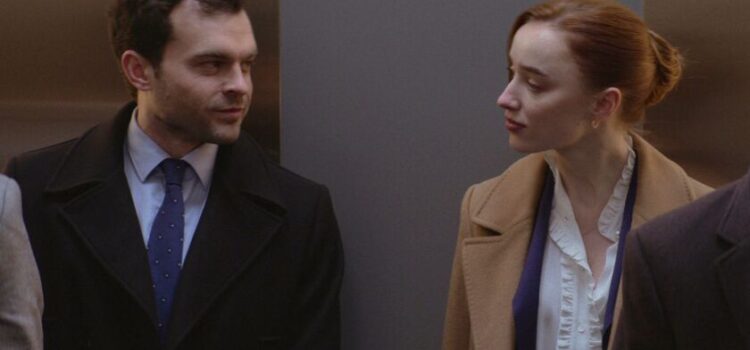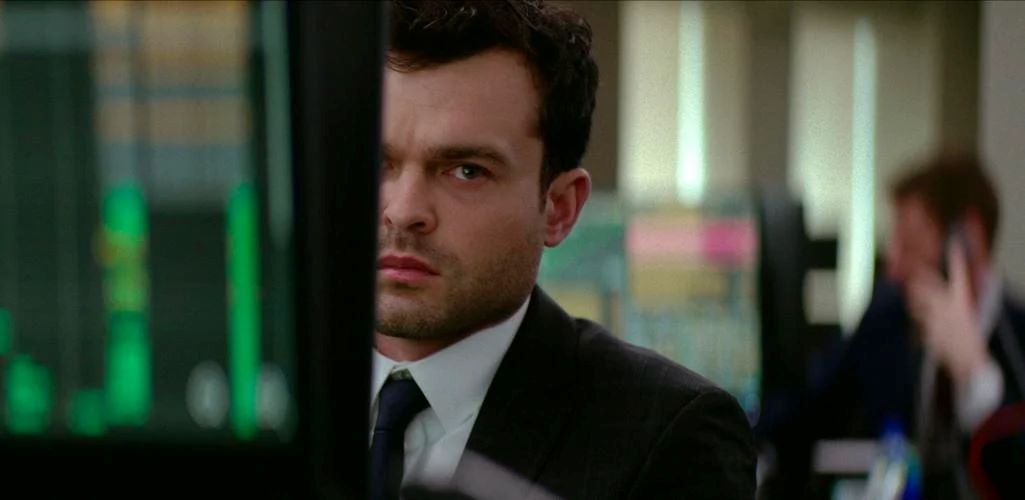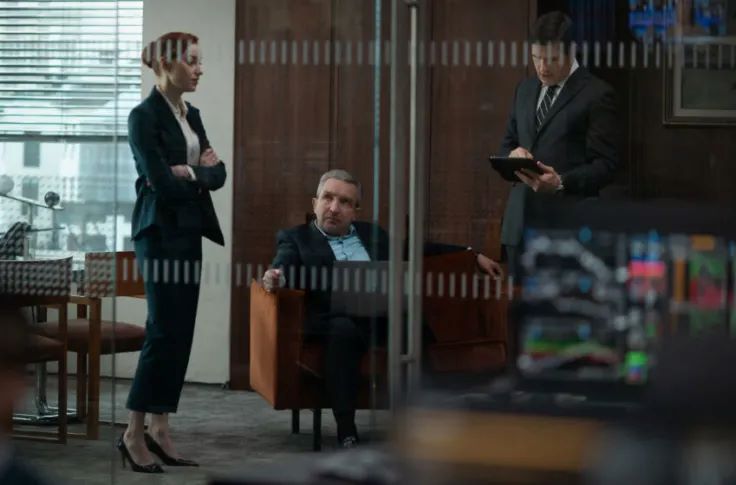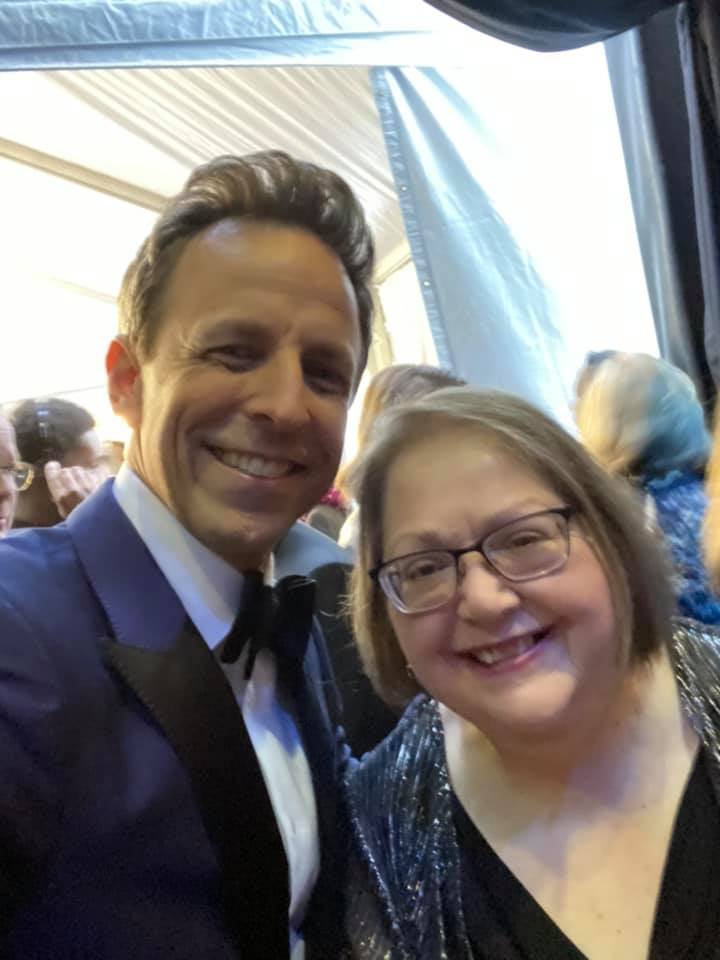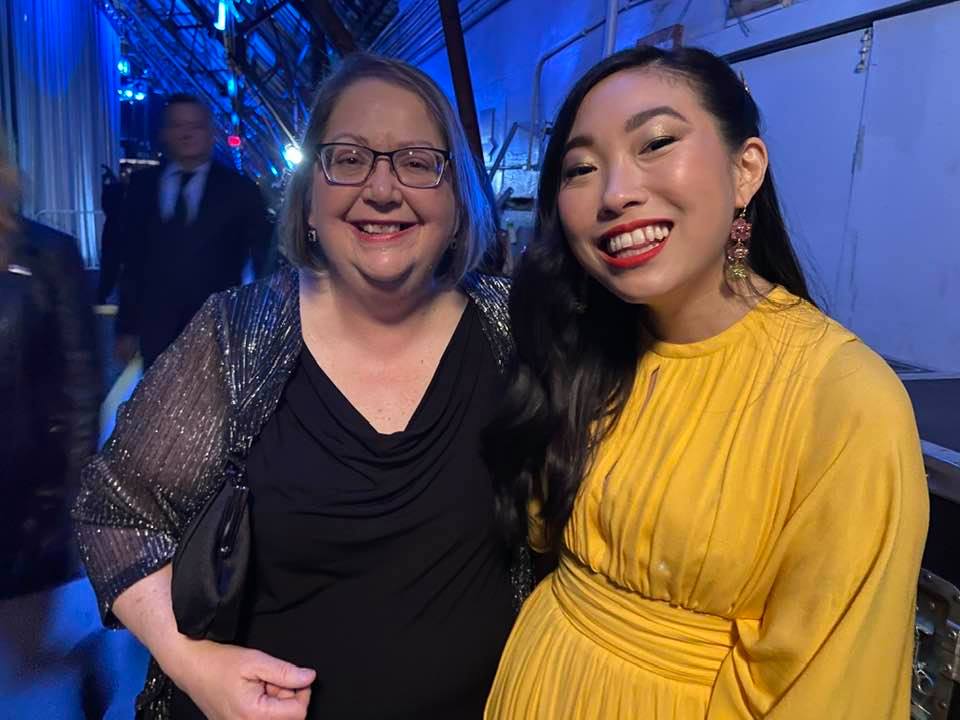By Lynn Venhaus
Sexual politics and corporate backstabbing are a toxic mix in “Fair Play,” an inevitable downward spiral of a film about how maintaining a relationship is challenging when things get complicated at work and home.
A recently engaged couple, who must keep their relationship secret at their cutthroat financial firm because it’s against company policy, are pushed to the brink after an unexpected promotion throws them into a personal and professional quagmire.
Emily (Phoebe Dynevor), Long Island girl with a Harvard degree, and Yale educated Luke (Alden Ehrenreich), a veteran of Goldman Sachs, are madly in love and about to share their romance with Human Resources when there is a coveted management position open. She overhears it may be him, but the reptilian boss (Eddie Marsan) wants her.
In her feature film debut, writer-director Chloe Domont confronts the elephant in the room, that no one seems to talk about — why a man’s promotion is considered a success, but a woman’s is a threat in a relationship?
You may think you know where “Fair Play” is headed, with the gender gameplay building in intensity, so that you feel it’s not just a matter of “if” but “when” for a meltdown to occur.

Domont tackles this fast-changing post-#MeToo world, where we have progressive couples who support feminist ideals yet were raised with a traditional view of masculinity, so a woman’s success could make a man feel less worthy, and although they try to suppress it, very real human emotions eventually emerge, sometimes in messy and ugly ways.
In a high-stakes environment, the egos on display are heightened here, setting up shifting dynamics, and sinister overtones. That explosive tension forces this off the rails in the third act, going from uncomfortable to painful as it strains credibility.
Set in New York City, the two main locations become increasingly claustrophobic – both in the sleek high-rise office and the tiny apartment they share (and that’s intentional, a key element to making the atmosphere off-kilter). Cinematographer Menno Mans and editor Franklin Peterson escalate the tension through intimate close-ups and awkward confrontations.
Domont, a veteran of directing “Ballers,” “Billions” and an episode of “Suits,” wanted to make a modern horror story, and the psychological aspect is intriguing, yet does it go too far? As agonizing as the climax is, the finale is both harrowing and strange.
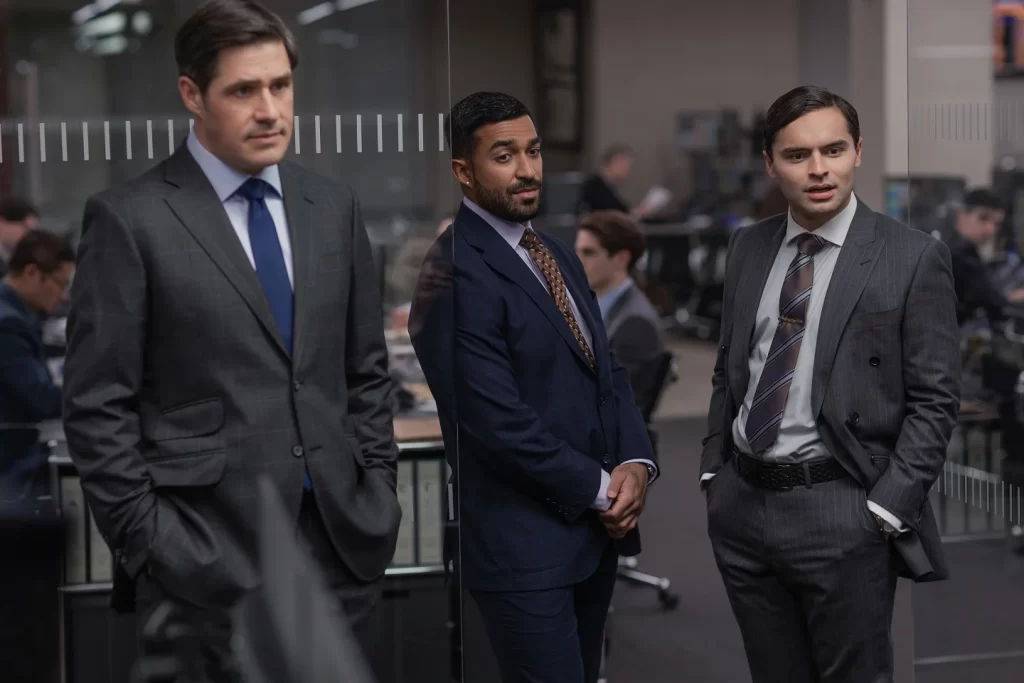
In her script, Domont has fashioned a realistic world of finance, nimble with the daily aspects of hedge-fund business, and production designer Steven Summersgill effectively conveys the high-rise office.
The acting is first-rate, and Dynevor, who broke out as Daphne on Season 1 of “Bridgerton,” and Ehrenreich, who played young Han Solo in Ron Howard’s ‘Star Wars’ story prequel, trusted each other enough to go to dark places. Marsan, a veteran character actor, is chilling here in the cavalier way he treats people and how power and greed have blackened his soul. Would you take what horrible insult he hurls at Emily? (Seriously, I’d like to know.)
The ‘one of the boys’ atmosphere is further emphasized through supporting players Sebastian De Souza as Rory, Jamie Wilkes as Quinn, Sia Alipour as Arjun, Rich Sommer (“Mad Men”) as Paul, and Brandon Basir as Dax – all portraying different levels.
Whatever you think about the conclusion, this film is meant to be provocative, a conversation starter that will result in more than a few heart-to-hearts. While the ending is subject to interpretation, images will haunt and questions will linger.

“Fair Play” is a 2023 drama-thriller written and directed by Chloe Domont starring Phoebe Dynevor, Alden Ehrenreich, and Eddie Marsan.
It is rated R for pervasive language, sexual content, some nudity, and sexual violence, and the run time is 1 hour, 53 minutes. It opened in select theaters Sept. 29 and began streaming on Netflix Oct. 6. Lynn’s Grade: C.

Lynn (Zipfel) Venhaus has had a continuous byline in St. Louis metro region publications since 1978. She writes features and news for Belleville News-Democrat and contributes to St. Louis magazine and other publications.
She is a Rotten Tomatoes-approved film critic, currently reviews films for Webster-Kirkwood Times and KTRS Radio, covers entertainment for PopLifeSTL.com and co-hosts podcast PopLifeSTL.com…Presents.
She is a member of Critics Choice Association, where she serves on the women’s and marketing committees; Alliance of Women Film Journalists; and on the board of the St. Louis Film Critics Association. She is a founding and board member of the St. Louis Theater Circle.
She is retired from teaching journalism/media as an adjunct college instructor.

